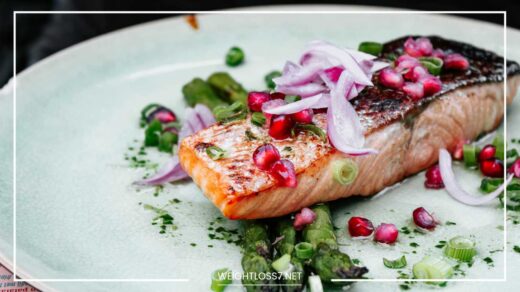A Nutritional Approach to Recovery

Nutritional Healing
A Nutritional Approach to Recovery: Fueling Your Body and Mind for Success
Recovery is a transformative process. Whether you’re mending a broken bone, overcoming addiction, managing a chronic illness, or simply seeking to optimize your overall health, a crucial element often overlooked is the power of good nutrition.
Just as a high-performance engine needs the right fuel to run smoothly, your body requires the proper nutrients to heal, rebuild, and function at its best.
This comprehensive guide delves into the power of a well-balanced diet for recovery, exploring its multifaceted benefits, key principles, practical implementation tips, and considerations for specific recovery needs.
The Symphony of Benefits: How Good Nutrition Orchestrates Recovery
Proper nourishment plays a vital role in recovery, influencing numerous aspects of your physical and mental well-being. Here’s a closer look at the key benefits:
- Enhanced Healing: Nutrients like protein, vitamin C, and zinc act as the building blocks for tissue repair. Protein is crucial for muscle growth and repair, while vitamin C aids in collagen production, a vital component of connective tissues. Zinc supports a healthy immune system, which is essential for optimal healing.
- Improved Energy Levels: A balanced diet provides sustained energy throughout the day. Complex carbohydrates, found in whole grains, fruits, and vegetables, release energy slowly, preventing the crashes associated with sugary foods. This translates to feeling more energized, focused, and ready to tackle the challenges of recovery.
- Boosted Immunity: A strong immune system is your body’s first line of defense against infections and illnesses. Consuming a diet rich in fruits, vegetables, whole grains, and lean protein provides essential vitamins, minerals, and antioxidants that support immune function. This is especially important during recovery when the body is more vulnerable.
- Reduced Inflammation: Chronic inflammation can hinder recovery and contribute to various health conditions. Certain foods possess anti-inflammatory properties. Omega-3 fatty acids, found in fatty fish and flaxseeds, and curcumin, found in turmeric, are examples of such nutrients. Including these foods in your diet can help manage inflammation and promote healing.
- Mental and Emotional Well-being: The gut-brain connection is a well-established concept. The trillions of microorganisms residing in your gut influence your mood, cognitive function, and overall mental well-being. Consuming a diet rich in prebiotics (found in fiber-rich foods) and probiotics (found in fermented foods like yogurt and kefir) can support a healthy gut microbiome, leading to improved mood, reduced stress, and better sleep – all crucial for a successful recovery.
Building a Strong Foundation: The Core Principles of a Recovery Diet
A recovery diet emphasizes whole, unprocessed foods that are nutrient-dense. Here are the key principles to guide you:
- Macronutrient Balance: Macronutrients – carbohydrates, protein, and fat – provide the body with energy and building blocks. Aim for a balanced composition on your plate.
- Protein: Protein is essential for tissue repair and muscle growth. Aim for 0.8-1 gram of protein per kilogram of body weight daily. Sources include lean meats, poultry, fish, eggs, legumes, and tofu.
- Carbohydrates: Carbohydrates provide readily available energy. Choose complex carbohydrates over simple carbohydrates. Complex carbohydrates release energy slowly, preventing blood sugar spikes and crashes. Examples include whole grains (brown rice, quinoa, oats), fruits, and vegetables.
- Healthy Fats: Fats are essential for hormone production, brain health, and nutrient absorption. Include healthy fats from sources like avocados, nuts, seeds, and olive oil.
- Micronutrient Powerhouse: Micronutrients – vitamins and minerals – play a critical role in various bodily functions. Include a variety of fruits, vegetables, and whole grains in your diet to ensure a good intake of micronutrients. Here are some key micronutrients to focus on:
- Vitamin C: Found in citrus fruits, bell peppers, and broccoli, vitamin C aids in collagen production and immune function.
- Vitamin D: Essential for bone health and immune function, vitamin D is obtained through sunlight exposure and can be found in fatty fish and fortified foods.
- Iron: Carries oxygen throughout the body, iron is crucial for energy production. Lean red meat, poultry, beans, and lentils are good sources.
- Calcium: Builds and maintains strong bones, calcium is found in dairy products, leafy greens, and fortified foods.
- Hydration is Key: Water is vital for numerous bodily processes, including transporting nutrients, regulating body temperature, and flushing out toxins. Aim for eight glasses of water daily, adjusting based on activity level and climate.
- Listen to Your Body: Honor your hunger and fullness cues. Eat regularly scheduled meals and snacks throughout the day to maintain consistent energy levels and avoid overeating.
- Practice Moderation: While certain foods are beneficial, moderation is key. Limit processed foods, sugary drinks, and unhealthy fats. These foods can contribute to inflammation, hinder nutrient absorption, and disrupt blood sugar levels, all of which can impede recovery.
- Make it Enjoyable: Eating should be a pleasurable experience, not a chore. Explore new recipes, experiment with flavors and cuisines, and find healthy foods you genuinely enjoy. This will make it easier to stick to a recovery diet in the long run.
Transforming Theory into Action: Practical Tips for Implementing a Recovery Diet
Now that we understand the importance and principles of a recovery diet, here are some actionable tips to put it into practice:
- Planning is Power: Spend some time planning your meals and snacks for the week. This will help you make healthy choices, avoid unhealthy temptations, and streamline your grocery shopping. Utilize meal planning apps or create a simple meal plan template. Include protein, carbohydrates, and healthy fats in each meal and snack.
- Stock Your Kitchen: Keep your pantry and fridge well-stocked with healthy staples like fruits, vegetables, whole grains, lean protein sources, and healthy fats. Having convenient options readily available will make it easier to prepare healthy meals, even on busy days. Consider pre-chopping vegetables and portioning snacks to save time.
- Embrace Home Cooking: Preparing meals at home allows you to control the ingredients, ensuring a balanced nutrient intake. Experiment with new recipes to keep things interesting. Explore healthy cooking techniques like baking, grilling, and steaming to preserve nutrients.
- Read Food Labels: Become a savvy food label reader. Pay attention to serving sizes and nutrient content, especially when buying packaged foods. Look for products with minimal added sugar, sodium, and unhealthy fats.
- Hydration Hero: Carry a reusable water bottle with you and sip on water throughout the day. Set reminders on your phone or use a hydration app to stay on track with your water intake. Consider incorporating fruits and vegetables with high water content like watermelon, cucumber, and celery to boost your hydration.
- Seek Professional Help: If navigating dietary changes on your own feels overwhelming, consider consulting a registered dietitian or nutritionist. They can create a personalized meal plan tailored to your specific recovery needs, preferences, and budget.
- Supplements can Support: In some cases, dietary supplements can help address specific nutrient deficiencies. Consult a healthcare professional before starting any supplements. They can recommend the appropriate type and dosage based on your individual needs. Blood tests can help identify any potential deficiencies.
Tailoring Your Plate: Addressing Specific Recovery Needs
A one-size-fits-all approach doesn’t work when it comes to nutrition. Here’s how to adapt your diet to address specific recovery needs:
- Injury Recovery: Increase your protein intake to support tissue repair. Aim for 1.2-2 grams of protein per kilogram of body weight daily. Include a variety of lean protein sources like chicken, fish, beans, lentils, eggs, and Greek yogurt in your meals and snacks. Additionally, focus on consuming adequate amounts of vitamin C for collagen production and vitamin D for bone healing.
- Addiction Recovery: Focus on replenishing depleted nutrients and stabilizing blood sugar levels to manage cravings and withdrawal symptoms. Opt for complex carbohydrates like whole grains, fruits, and vegetables. Include healthy fats from nuts, seeds, and avocado to support brain function and hormone regulation.
- Post-Surgery Recovery: Follow your doctor’s dietary recommendations, which may emphasize specific nutrients for optimal healing. This may include increased protein intake or specific restrictions depending on the type of surgery.
Beyond the Plate: A Holistic Approach to Recovery
While nutrition plays a crucial role in recovery, it’s just one piece of the puzzle. Here are some additional lifestyle practices that can support your recovery journey:
- Prioritize Sleep: Aim for 7-8 hours of quality sleep each night. Sleep is essential for cell repair, hormone regulation, and cognitive function.
- Manage Stress: Chronic stress can hinder recovery. Practice stress-management techniques like yoga, meditation, deep breathing exercises, or spending time in nature.
- Move Your Body: Regular physical activity, even gentle movement like walking, can promote healing, improve mood, and boost energy levels.
- Build a Support System: Surround yourself with positive, supportive people who encourage your recovery journey.
Final Word: Fueling Your Journey to Wholeness
A well-balanced diet is a powerful tool that can significantly enhance your recovery journey. By incorporating the principles and tips outlined in this comprehensive guide, you can fuel your body with the essential nutrients it needs to heal, rebuild, and thrive.
Remember, good nutrition is an investment in your overall well-being, not just during recovery but throughout your life.
Here are some final thoughts to keep in mind:
- Be Patient: Recovery is a process, not a destination. There will be setbacks and challenges along the way. Be patient with yourself and celebrate your progress, no matter how small.
- Embrace Flexibility: Life happens. There will be days when sticking to your perfectly planned meals isn’t feasible. Don’t let occasional slip-ups derail your progress. Get back on track with your next meal and focus on making healthy choices most of the time.
- Enjoy the Journey: Focus on developing a healthy relationship with food. Explore new flavors, experiment with recipes, and find joy in nourishing your body.
Remember, you are not alone on your recovery journey. By prioritizing good nutrition, along with other healthy lifestyle practices, you can empower your body and mind to heal, regain strength, and achieve optimal well-being.

















